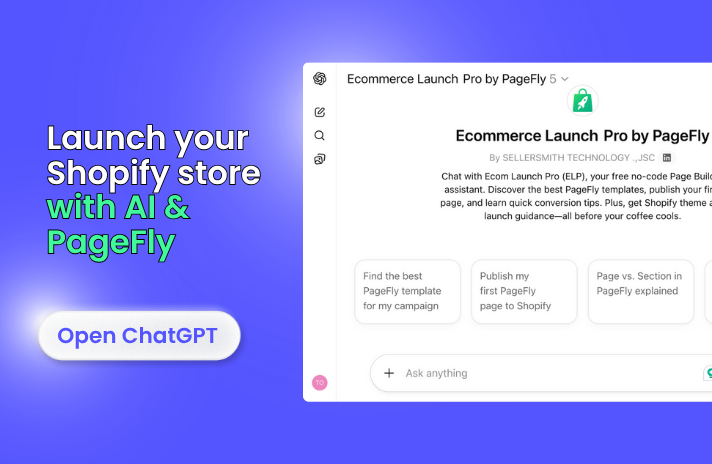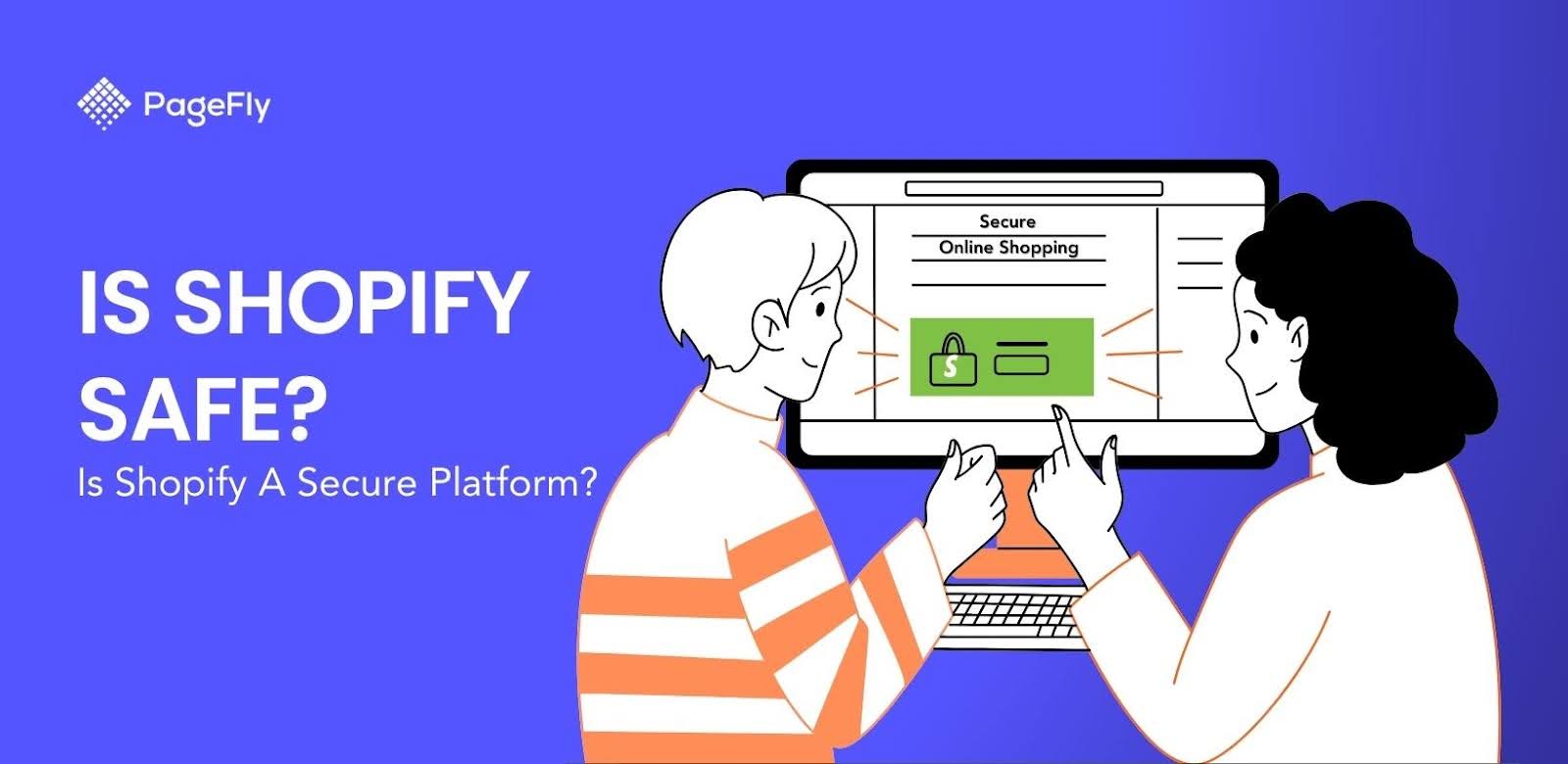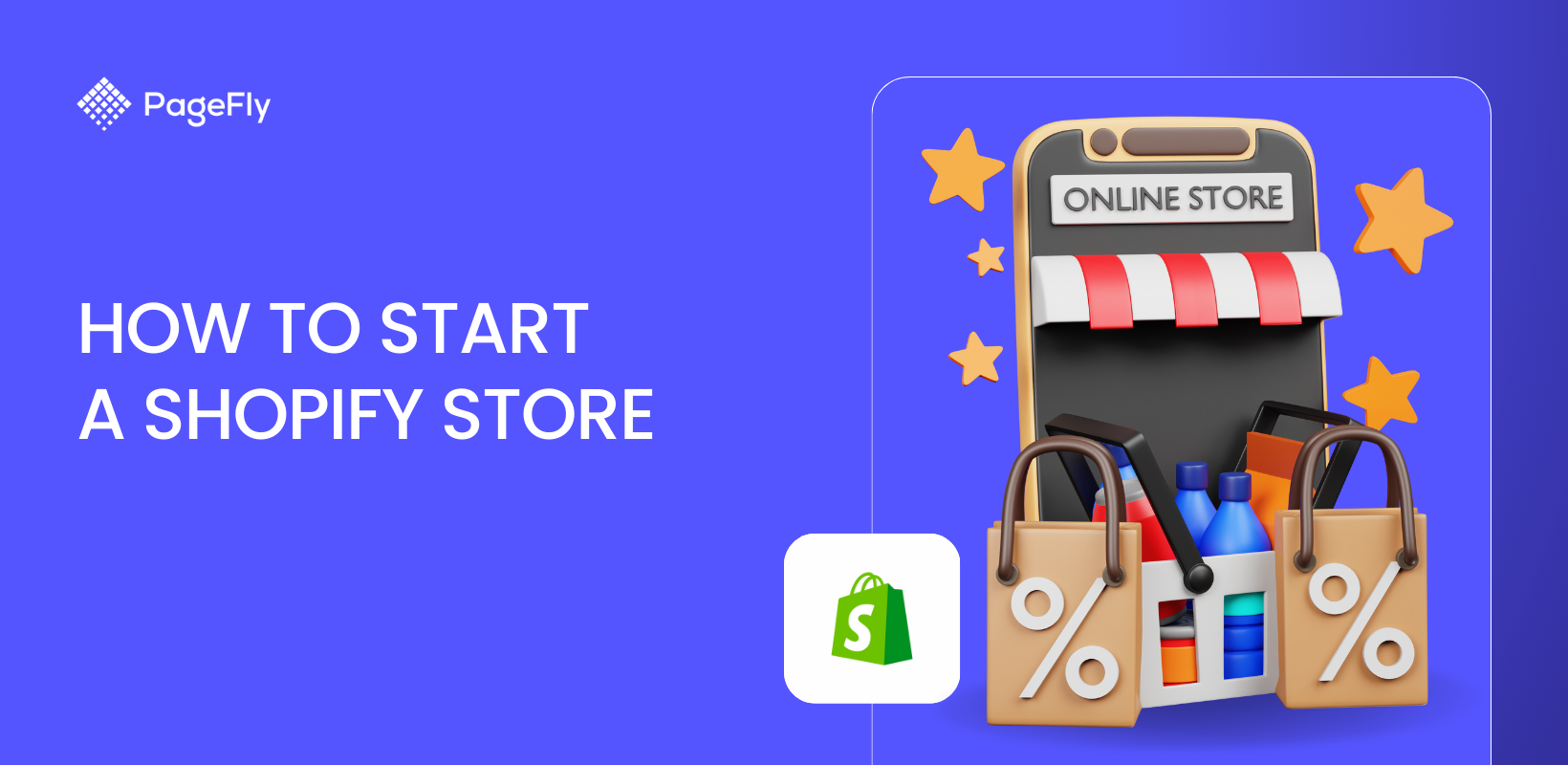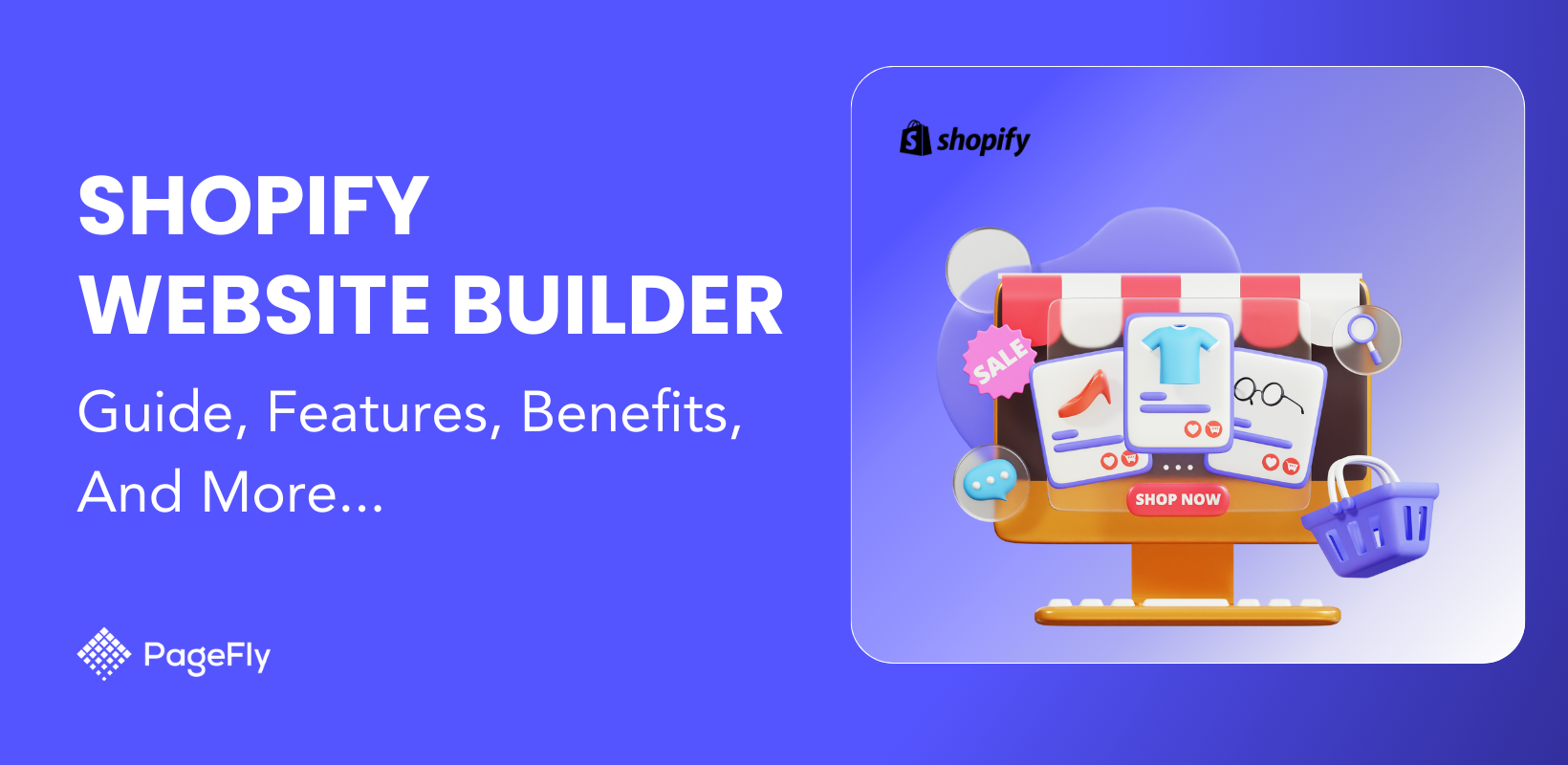If you have ever considered starting an online business, you must have heard of the name “Shopify”. Just one search on Youtube and you can find a bazillion videos of dropshippers saying they have made millions of dollars with it. That might actually be unsettling because it does seem like a get-rich-quick scheme, which poses the question:
Is Shopify safe for your business?
While yes, a lot of people other than dropshippers trust it and use it as the main platform for their business, can you just follow suit blindly? Aware of the necessary caution for many beginner merchants, we will find out how secure is Shopify for an online entrepreneur like you.
And with that in mind, let’s begin this discussion about Shopify security by first getting to know what Shopify truly is (aside from the common notion that it’s a get-rich-quick platform).
After that, we will tackle all the Shopify security features that will keep your mind at ease in knowing that Shopify is indeed a safe platform for small and large businesses.
I. What Is Shopify?
Before we get into the main act, let’s walk through the basics a bit. Just in case you are a complete beginner at eCommerce, you will need to know exactly what Shopify is and why it is so popular.
In short, Shopify is a fully-hosted, cloud-based eCommerce platform for online merchants worldwide. It allows anyone to bring their business to an online space with an integrated online store builder that requires no background in coding whatsoever, where they can promote and sell their products. Thanks to its seemingly infinite free and paid apps, Shopify can easily help you reach a higher number of audiences, and subsequently generate more revenue.
But we cannot discuss a product you are not familiar with without specifying its pros and cons, can we?
01. Shopify’s pros
Being a household name in the eCommerce world, Shopify offers its users a ton of good things:
- It is super easy to use: The design and functionalities are incredibly intuitive. You can build an online storefront from scratch without any coding background at all.

Shopify’s dashboard is easy to navigate through
- Shopify themes: Shopify Theme Store includes over 100 free and premium themes for you to choose from and use as templates. Other than that, there are many third-party themes from developers all around the world if you feel like 100 is not a big enough number.

- Shopify apps: The Shopify App Store contains over 7,200 apps for merchants to choose from. It is essentially an all-you-can-eat buffet, but for plugins. But beware, not all of them are free, and you might want to think carefully before settling on the one you consider the best eCommerce solution.

02. Shopify’s cons
Of course, the platform is not perfect. It comes with a few downsides as well, namely:
- Possible rising costs: This is not to say that Shopify is inconsistent with their pricing, but rather the fact that you might need to use a few plugins for the best results, which can slowly amount to much larger expenses than you anticipated. Some apps charge even more than Shopify’s basic monthly plan.




A few examples of essential one-function apps that can pile on and increase costs
- SEO limitations: Although Shopify tries its best to accommodate its users’ online business needs, some SEO features to help your online store grow are only accessible through third-party apps, which cost money as mentioned above.
If you want to know more about Shopify’s pros and cons, feel free to check out our in-depth articles on the matter right here: Shopify Pros and Cons - over 2,000,000 businesses on Shopify.
II. So, How Safe is Shopify?
It might be a bit anti-climactic to wait all this time to get such a short answer, but yes, Shopify security is top-level. Of course, you can say that we are biased for having been a Shopify partner since 2016, but that doesn’t negate the fact that we have chosen Shopify in the first place because we firmly believe that it was the best eCommerce platform then, and even now. Additionally, we thoroughly studied how secure is Shopify before we built an entire business model around it.
Below is a list of all the reasons why Shopify is safe and legit, and why you should choose the platform to kickstart your eCommerce business.
01. It has been around for over 16 years
Shopify was founded in 2006 by Tobias Lütke and Scott Lake after attempting to open Snowdevil, an online store for snowboarding equipment. The founders were dissatisfied with every existing eCommerce solution on the market, so they decided to make one of their own.
Since its inception, Shopify has gathered approximately 2 million daily active merchants with over 3.76 million Shopify stores, the majority of which are registered in the US. Particularly, Shopify was listed on the New York Stock Exchange. The brand’s peak market capitalization reached over $212 billion in November 2021 but dropped to around $45.66 billion at the time of this article’s publication.
02. PCI compliance
One Shopify security feature that we certainly love is its PCI compliance. Because after all, Shopify is an ecommerce platform and people leave their sensitive payment details to make payments.
As such, the platform must be secure or else, your customers’ financial details will be in peril.
All Shopify stores are PCI compliant by default so users can keep payment information and business data safe. Just in case you are unfamiliar with PCI, it is short for Payment Card Industry. The Payment Card Industry Data Security Standard (PCI DSS for short) is a security standard for organizations handling credit and debit card information. This standard helps control payment data and reduce fraud.
Shopify is certified Level 1 PCI compliant, which dictates that Shopify covers all six PCI standard categories:
- Maintain a secure network
- Protect customer data
- Maintain a vulnerability management program
- Implement strong access control measures
- Regularly monitor and test networks
- Maintain an information security policy
With Shopify’s PCI compliance, customers need not worry about their credit card information being leaked and used for illegal purposes. Merchants also have nothing to worry about their payment information; furthermore, this can help them build trust with consumers.
03. Shopify’s Bug Bounty program
One of the platform’s strides towards increasing Shopify security is its Bug Bounty Program.
Every year, Shopify’s bug bounty program rewards security researchers for finding serious security vulnerabilities in Shopify’s core application as well as certain ancillary applications. Depending on the priority of the bug, the reward can vary. In 2022, the maximum payout for the most critical issue is $100,000!

Not only is this a demonstration of the platform’s commitment to reward researchers for their hard work, but it is also proof of Shopify’s integrity in ensuring safety for its users.
2021 was a busy year for Shopify in this regard. It became a sponsor of the Internet Bug Bounty program in order to help fund open-source bounties and better support maintainers. Over $1 million was paid in bounties to hackers reporting over 3,000 reports to the program. The aforementioned $100,000 maximum payout is actually double that of last year’s $50,000.
04. Free SSL certificates for all Shopify stores
For context, SSL (Secure Sockets Layer) certificates offer an additional security level for websites. They are particularly useful for protecting personal information and payment details of customers and visitors of an online store.
To check whether an online store has installed a Secure Sockets Layer certificate, you can check the URL or the address bar. If the website address starts with HTTPS rather than HTTP, that means the website has an SSL certificate.
Normally, if you were to build a website on your own, you would have to pay $50 a year for an SSL certificate. Some eCommerce websites only offer the certificate if you opt for their premium plans, while even subscribers of the Shopify Lite plan get this privilege. So by offering free SSL certificates for all online stores, Shopify is saving you money.
Better yet, the certificate is automatically added to your online store, so you don’t even have to care about learning extra tech skills to use it.
Other than SSL, Shopify also uses TSL (Transport Layer Security) to further protect store owners' and shoppers’ information. The protocol is actually newer than SSL and is slowly replacing SSL for protecting sensitive information. And of course, this comes with all Shopify subscription plans).
With all these Shopify security features coming in free for all types of users, you can get an inkling that Shopify pays close attention to online security for both its users (merchants like you) and your customers.
05. Security monitoring
This is an ongoing protocol where Shopify will scan for widespread Shopify security vulnerabilities and notify partners and merchants. Users are then prompted to either check and fix the problem.

Being a Shopify partner ourselves, we have received emails in this regard from Shopify multiple times. Below is an example where Shopify let us in on a security vulnerability in our program.
06. Responsive customer support
Responsive customer support is something you want in any service on Earth if you were to be a customer. And since you are paying Shopify to use their platform, you should take into consideration its lightning support speed.
Shopify is well-known for its excellent customer support team. They are ready to help you whenever and wherever. We have tested Shopify’s support ourselves by asking anonymous questions, to which they responded almost immediately and resolved our concerns efficiently.
Other than that, due to the massive amount of users, Shopify has devised a giant database of FAQs just in case you want a solution without needing to talk to anyone.
With that in mind, when you have doubts about Shopify security in your store, such as if you think there’s something unusual with your store, you can always talk to Shopify’s responsive customer support to address your serious concerns.
07. Is Shopify Safe and Legit?
While Shopify security is the number one concern, you should also take into account the platform’s legitimacy. This mostly regards whether the platform is trying to wow you with technical jargon to make you feel safe and then sucks your wallet dry. But fear not, Shopify, as reviewed by millions of customers, is genuinely interested in creating long-term win-win relationships with its users.
- Shopify does not overpromise anything: it has never claimed every Shopify store owner will be successful. If you have heard any of those claims, they are definitely from influencers promoting their get-rich-quick schemes.
- The platform is open about not being perfect: You can easily find articles about the Shopify Bug Bounty program where the brand is outright admitting to numerous errors and bugs.
- No additional fees that users don’t know about: Shopify is very open about their pricing plans, and what you see is what you get. Along with that, there have been zero sudden drastic price increases.
- You can find many real examples of Shopify stores: Just a few seconds on Shopify Theme Store can lead you right to real websites using the platforms.

Source: Shopify Foodie Theme
- Free trial without providing card information: You can easily get 3 days to try out Shopify for free without needing to whip out your credit card. Other than that, you can try Shopify’s services (including the $299/month premium plan) for just $1 with the $1 First Month Shopify Deal.

Shopify 14-day free trial
- Hassle-free subscription downgrade of cancellation: Just in case you are unsatisfied with Shopify’s products, you can easily cancel or opt for a different subscription plan.
III. How Do I Enhance My Shopify Security?
Those protocols mentioned above are universally regarded as the safest and most economical ways to protect your online information. But other than that, Shopify also offers many solutions to further secure your data, such as:
- Two-factor authentication: This makes sure that only admins with double passwords can make changes to the Shopify store or review financial information.

Enabling two-step authentication - Source: AVADA
- Account locking: Shopify will automatically lock your account if it detects any information compromise or leaks, as well as suspicious login attempts.
- Identity confirmation: Shopify will require you to confirm your identity if your Shopify store has been inactive for more than 3 months.
- Integration: Shopify is integrated with Google Sheets through a “common service” app to make sure your data is secure during exports and imports. The site is also integrated with Amazon since 2017 to allow store owners to sell on Amazon from their Shopify stores; this gives users security protocols from both giant eCommerce platforms.

The truth is, you also play a huge role in making sure that your store is secure. As such, you’re part of the answer to the question: “How safe is Shopify?”
Here are more ways to enhance Shopify security through your own efforts.
- Schedule regular backups: Even though Shopify has a full-fledged hosting infrastructure that ensures data redundancy, it cannot deal with human errors like accidentally deleting your website’s content. You should back up your data just in case you or an intern mistakenly click on the trash can icon to recover lost information easily.
- Change your passwords regularly: This is more like a cherry on top to prevent password leaks by having your laptop screen seen by someone in a public place.
- Lock restricted content: Sometimes your business will call for restricted content, maybe to segment premium customers and members, or appeal to investors. A tool like Locksmith on the Shopify App Store can take care of those needs.

IV. How To Avoid And Report Scams On Shopify?
Hackers are the primary reason why you need to pay serious attention to your Shopify security. Despite Shopify’s powerful fraud prevention system, the platform is still swarming with scammers that can find loopholes and drain money/products from earnest online store owners. Let’s start first by identifying the most common scams that a Shopify store owner might fall victim to.
- Triangulation: One of the most common and profitable scams out there. Scammers will create real Shopify sites and make orders from online suppliers to send to their own customers. While that sounds exactly like a dropshipping business, a totally legal business model, those scammers buy inventory with stolen credit cards, so the transaction will be rejected. They then get money from a chargeback on Shopify while the supplier loses both the product and money.
- Duplicator: Scammers will open a fake Shopify store that is almost identical to a legitimate one and sue the original for copyright infringement. Real sellers will suffer from a loss of customers as well as money consequently.
- Fake return ticket: While this scam might take longer to execute, it is still a classic in all types of business. Scammers will first buy a product from your store for real and keep the bill; they then buy a more expensive product that bears some resemblances. After they buy the more expensive item, they will issue a return and ship the cheaper product back to you, keeping the more expensive one for themselves.
- Fake Paypal invoice: Scammers will make a purchase and make up an excuse that they cannot finish the payment due to technical problems. They request a direct invoice straight from PayPal. After you send them the invoice, you will receive a notification from PayPal (spoiler alert, it’s fake) that the buyer has finished paying and PayPal checkout has the funds on hold until you give them the tracking number. Unfortunately, there is no PayPal holding the funds, and you have just sent the product to the scammer for free.
- Fake purchase orders: Scammers who successfully pull this off are especially skilled in tech and software. They will act as real customers, create a copy of your Shopify checkout sheet and alter the submit button link. They can then patch the order to their hacking software and modify the data they received from your order, specifically the price. If you fail to notice the difference in price, you will lose profit on that order.
01. So how can you avoid those scams?
For most of the aforementioned scams, there are measures you can take to avoid it, albeit not entirely, unfortunately. But we will do our best to provide you with the best scam-avoiding skills.
- Avoiding triangulation: Unfortunately, there is no way for store owners to prevent themselves from falling victim to this scam. The responsibility lies in the hands of consumers. They should be cautious of where they are shopping online, keep their card details private with the help of anti-virus software, and refrain from buying suspiciously cheap products.
- Avoiding duplicators: Shopify is well aware of this scheme and has made robust efforts to scan for duplicate online stores and take them down. They also offer monthly maintenance for merchants’ transactions, so you don’t have to worry about this scam too much. Just in case you are selling original products and want to be extra careful, consider trademarking your business.
- Avoiding fake return tickets: The most effective guard against this scam is finding a way to tell your products apart better. Simply add unique identifiers such as serial numbers on your products and the problem will be solved!
- Avoiding fake PayPal invoices: You can be stricter with the checkout process by disallowing PayPal invoices altogether or opting for a safer choice. Don’t ship the product before receiving the payment.
- Avoiding fake purchase orders: You can start small by double-checking every order you are about to ship. If you have resources to spare, hire IT employees who can detect frauds like this for you.
All this being said, we have to give scammers credit for being creative, which might result in more elaborate scams in the future. Shopify has taken extra measures to detect potentially fraudulent orders and give you a heads-up in advance, so it is a good idea to check all those orders flagged by Shopify. For more information, check this video out for a clearer idea of how to prevent fraud.
02. How can you report scams?
As a customer, you can report an issue with any Shopify store you find troubling right here.

However, as a merchant, Shopify has not really offered a one-size-fits-all solution. Most likely, if you have been scammed, you will have to take it up with customer support, which is lightning quick, fortunately. And in case you come across a suspicious message that you think is part of a phishing scam, forward it to Shopify’s safety inbox at safety@shopify.com right away.
In A Nutshell
So, is Shopify safe enough for you yet? We hope the article has convinced you enough to be a part of Shopify’s massive merchant community. The platform will be a perfect choice for beginners and will help kickstart your online business tremendously. Don’t even worry about running short on capital because Shopify Capital will provide you with funding to help you in the early stages.












![27 Best Shopify General Stores + Complete Strategy Guide [2025]](http://pagefly.io/cdn/shop/articles/Best_Shopify_General_Stores_2f9d09f2-7c38-4da9-a495-e9f4898ddd68.jpg?v=1757271936&width=1640)





